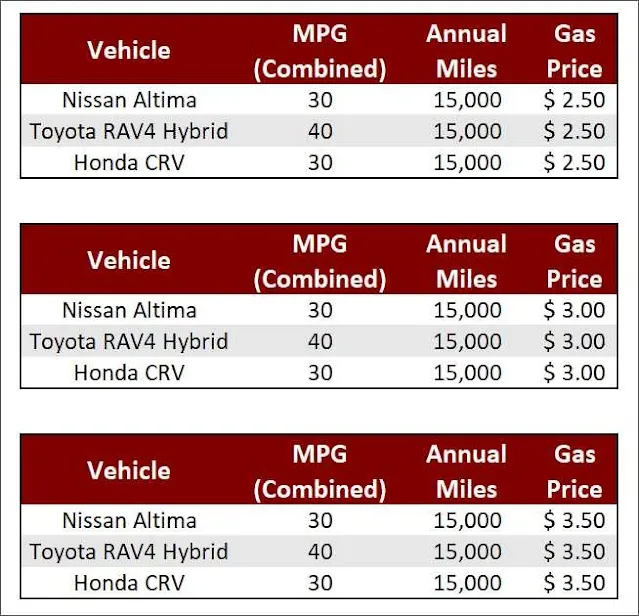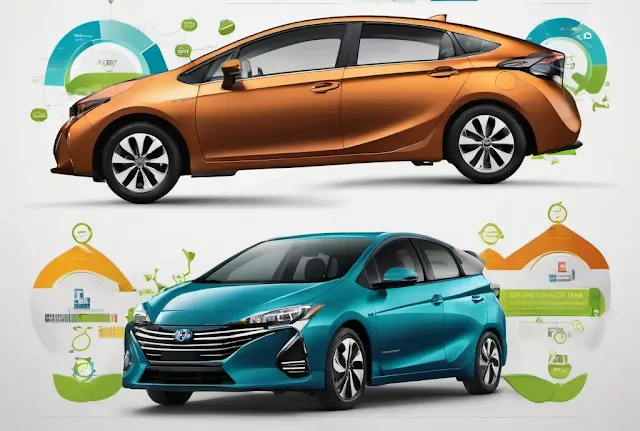Maximizing Your Savings: A Comprehensive Guide to Hybrid and Electric Cars in 2024
Is Buying A Hybrid Car The Right Choice? Exploring Gas Savings
With the rising concern for fuel efficiency and eco-friendly alternatives, the choice between a hybrid car and a traditional vehicle has become a pivotal decision for many. Is it a wise financial move or just a trendy choice? Let's dive into the numbers and find out.
Before we crunch the numbers, let's get acquainted with the different types of vehicles in the spotlight:
- Hybrid Car: Combining a gasoline engine and an electric motor, these vehicles are more fuel-efficient than traditional cars.
- Plug-In Hybrids: Similar to hybrid cars but with a larger battery, allowing for longer electric-only mileage.
- Electric Cars: Powered solely by electric motors, offering excellent fuel efficiency and longer travel distances.
- Traditional Car: The conventional internal combustion engine and gasoline-powered vehicles.
Now, let's delve into the key steps to determine if investing in a hybrid car is the right move for you.
#1. Determine The Fuel Economy Between Cars
To assess potential gas savings, start by comparing the annual fuel costs of the hybrid you're eyeing with your current vehicle. Efficiency, measured in miles per gallon (MPG), plays a crucial role here.
For example, if you're eyeing the 2020 Toyota RAV4 Hybrid, compare its 40mpg with your current vehicle, like the 2017 Nissan Altima with 30mpg. Websites like fueleconomy.gov can assist in obtaining EPA mileage data.
#2. Determine How Many Miles You Drive
Understanding your annual mileage is crucial. Whether estimating from the average driver's mileage (12,000-15,000 miles) or checking your vehicle's service records, this step sets the stage for accurate calculations.
#3. Estimate The Cost Of Gasoline
Considering fluctuating fuel prices, choose multiple gas costs (e.g., $2.50, $3.00, $3.50 per gallon) to gauge potential savings more realistically.
#4. Take Into Account Electricity Prices
For plug-in hybrids, factor in both gasoline and battery power. Assuming an even split, calculate costs based on your annual mileage for each fuel type.
#5. See Your Fuel Savings
Utilize a spreadsheet or a dedicated online calculator to combine all data. Factor in gas prices, annual mileage, and your vehicle's fuel efficiency to quantify potential savings.

#6. Factor In Maintenance Costs
While gas savings are significant, maintenance costs contribute to the total ownership expense. For simplicity, assume maintenance costs between vehicles are similar.
#7. Add In Purchase Price
Consider the upfront cost of a new car. Although hybrids may save on fuel, a higher purchase price impacts overall savings. Compare prices to gauge the true financial benefit.
#8. Determine Your Overall Savings
Calculate the break-even point by dividing the higher purchase price by annual gas savings. This reveals how long it takes to recoup the initial investment through fuel savings.
Remember, for substantial savings, plan to keep your hybrid for several years.
#9. Rinse And Repeat
If initial analysis indicates significant savings, your work is done. However, if results are unfavorable, consider exploring other hybrid models or newer, fuel-efficient non-hybrid options.
Fuel Savings For Electric Vehicles
For electric vehicles (EVs), a similar approach applies. Evaluate your driving habits, electricity rates, and potential savings on maintenance. Additionally, consider available tax credits or incentives for EV purchases.
Conclusion
The decision to buy a hybrid or electric vehicle involves more than just environmental concerns. By calculating potential fuel savings, factoring in purchase prices, and considering your driving habits, you can Empower yourself to make a decision that not only fits your budget but also contributes to a greener future. Choose wisely, considering both your financial well-being and environmental aspirations.
- Unlock Success: A Step-by-Step Guide to Freelancing Without Experience | Over 30 Ideas for Beginners
Explore specific hybrid models, use online calculators to estimate your potential savings, or visit a local dealership for a test drive. Take charge of your choices by selecting an option that not only aligns with your budget but also supports a more eco-friendly tomorrow. Make a thoughtful decision that nurtures both your financial well-being and environmental aspirations. Happy driving!




Post a Comment